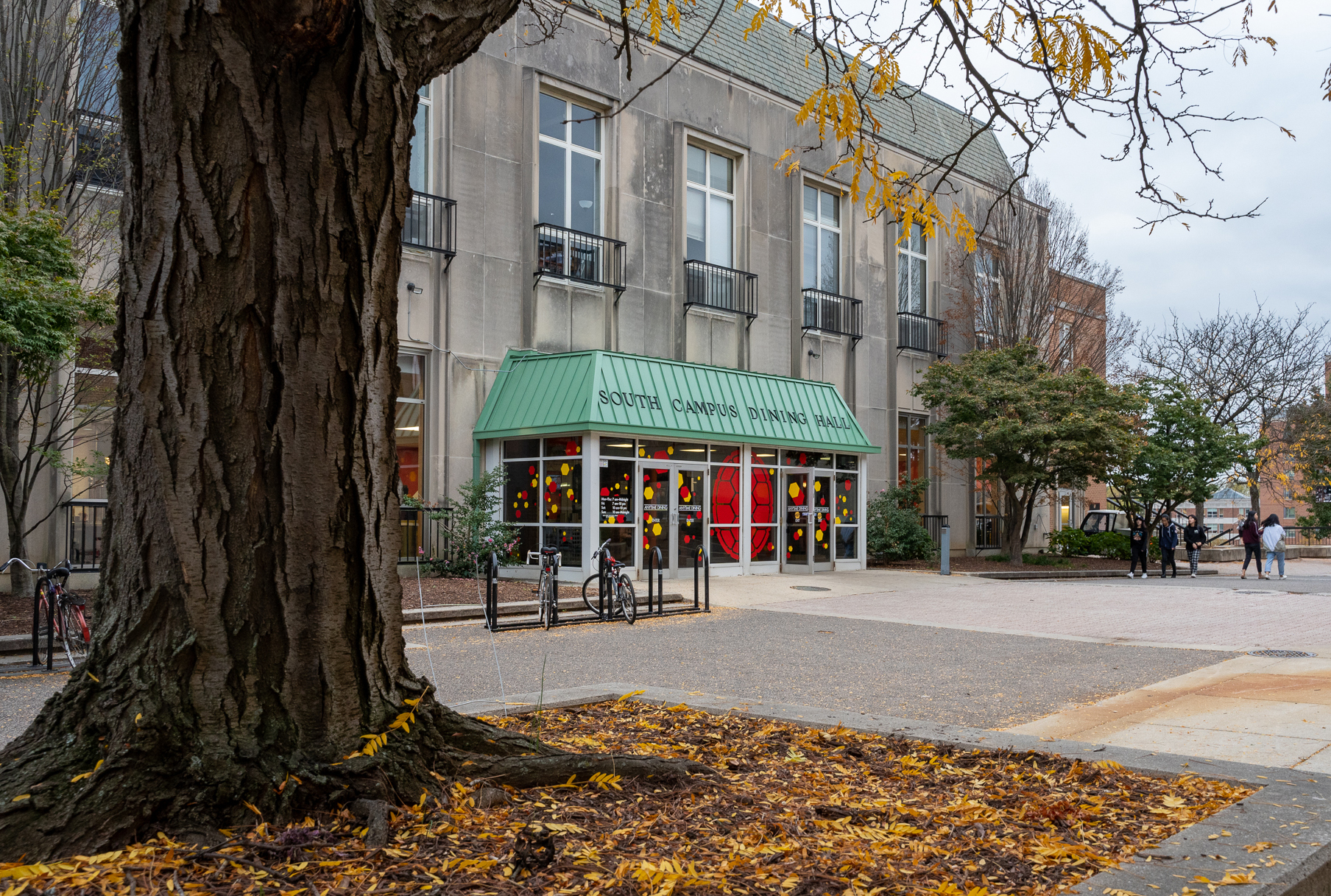By Clara Longo De Freitas and Clara Niel
A former University of Maryland student with celiac disease is suing the school after she says she fell ill after ingesting gluten in the dining hall on several different occasions, according to lawsuits filed in the Prince George’s County Circuit Court and United States District Court last week.
According to the lawsuit, the student — Hannah Smith, who graduated from the university in 2019 with a communication degree — met with staff from Dining Services with her parents in Aug. 2017, before arriving on campus. There, she says she was assured that she would be able to safely eat in the dining halls.
However, according to the lawsuit, Smith fell violently ill several times after eating meals that she had been assured by Dining Services staff were gluten-free — so ill on one occasion that she had to be hospitalized. As a result of the alleged incidents, Smith had developed a rash all over her face, the complaint read.
The lawsuit is calling for the court to issue a judgment that the university “subjected Smith to physical, emotional, and financial harm and discriminated against her on the basis of disability,” as well as award “compensatory damages,” without specifying a certain financial amount.
Read more: [Court dismisses ex-student’s lawsuit claiming UMD wrongfully expelled him for sexual assault]
Dining Services spokesperson Bart Hipple and two other department staff declined to comment. A university spokesperson deferred comment to the Maryland Office of the Attorney General, which represents the school.
In an email, the office wrote that it had not been formally served with a suit and does not comment on pending or ongoing litigation.
Smith is being represented by Mary Vargas, an attorney with Stein & Vargas LLP. In the complaint, Vargas writes that Smith “suffered short-term and long-term physical and emotional consequences” from her alleged experiences at the university.
The lawsuit also accuses the university of violating the Americans with Disabilities Act.
“As a student living in and having paid for on-campus housing and dining hall access, she was dangerously captive and at risk,” the complaint reads. “Smith did not have the safe access to food or to the education and college experience she was promised.”
Vargas emailed a copy of the lawsuit, but did not respond to requests for comment.
The complaint lays out in graphic detail what Smith says happened each time she ingested gluten.
Read more: [UMD’s dining halls commit to serving more “climate-friendly” food]
In the first described instance in October 2017, Smith ate Frosted Flakes after she says dining staff assured her they were gluten-free, according to the complaint. Afterward, Smith says she “vomited so intensely that blood vessels through out her face burst,” and she also had difficulty walking, brain fog and rib pain from projectile vomiting, the lawsuit read.
Later that same day, Vargas wrote in the complaint, Smith fell ill after eating a vegetable soup advertised as gluten-free. However, Smith says the soup contained barley — which contains gluten. Once again, Smith said she vomited violently and uncontrollably, according to the lawsuit.
A few days later, the lawsuit says that Smith requested gluten-free toast from the dining hall, and instead received a burnt piece of bread, along with a note that scared Smith and caused her not to eat it.
“You know, I got called on the carpet because nobody told me that malt had gluten in it. Here’s your breakfast. I hope you enjoy your ‘gluten free’ toast,” it read, according to the complaint.
Months later — in February 2018 — Smith said she ate a breakfast she had been assured was gluten-free. However, it included a hash brown, which contained gluten — causing Smith to vomit for hours and get rushed to the hospital, according to the lawsuit.
Later on, Vargas wrote an employee told Smith privately the university did not take food allergies seriously. After that encounter, Smith ate off campus and relied on packaged food items, the complaint read, and she later moved into an on-campus apartment with a kitchen.
Because of these incidents, Vargas wrote that Smith’s academic progress suffered. When Smith was hospitalized, she had to miss six days of classes; she also had to take a winter session course to remediate a low grade she received while suffering “constant illness caused by UMD,” according to the complaint.
The university did not refund the cost of a dining plan to Smith, according to the lawsuit.



